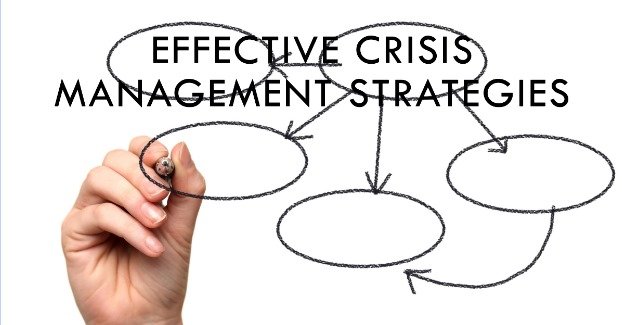In today’s fast-paced and unpredictable business environment, crises are inevitable. Whether it’s a natural disaster, a financial meltdown, a cyber-attack, or a public relations disaster, companies must be prepared to handle emergencies effectively. Crisis management involves identifying potential threats, developing response plans, and executing these plans to mitigate the impact of crises on the organization. This article delves into effective crisis management strategies that businesses can adopt to navigate through turbulent times successfully.
Effective crisis management is not only about responding to emergencies but also about preventing potential crises and being prepared for the unexpected. Companies that have robust crisis management strategies in place are better positioned to protect their reputation, maintain customer trust, and ensure business continuity. By understanding the key elements of crisis management and implementing best practices, organizations can minimize the adverse effects of crises and emerge stronger.
Establishing a Crisis Management Team:
The foundation of effective crisis management is establishing a dedicated crisis management team. This team should consist of individuals from various departments, including public relations, human resources, legal, finance, and operations. Each member should have a clear understanding of their roles and responsibilities during a crisis. The team should be led by a crisis manager who coordinates the response efforts and ensures that communication flows smoothly.
Regular training and simulations are crucial for preparing the crisis management team. These exercises help team members practice their roles and improve their ability to respond quickly and effectively. By establishing a crisis management team and conducting regular training, companies can ensure that they are ready to handle any crisis that may arise.
- Rowland Alexander, founder of Which Pad
Developing a Comprehensive Crisis Management Plan:
A well-structured crisis management plan is essential for guiding the organization through a crisis. This plan should outline the steps to be taken before, during, and after a crisis. It should include procedures for identifying and assessing risks, communicating with stakeholders, and managing the crisis response. The plan should also specify the roles and responsibilities of the crisis management team and provide contact information for key personnel and external partners.
In addition to the core elements, the crisis management plan should incorporate contingency plans for various scenarios. These contingency plans should address potential crises such as natural disasters, cyber-attacks, and supply chain disruptions. By developing a comprehensive crisis management plan, companies can ensure that they are prepared for a wide range of emergencies and can respond effectively to minimize the impact on their operations and reputation.
- James Hans of Haro Builder
Effective Communication During a Crisis:
Clear and timely communication is critical during a crisis. Companies must communicate with employees, customers, partners, and the media to provide accurate information and manage expectations. The crisis management team should establish communication protocols and designate spokespersons to deliver consistent and credible messages. These spokespersons should be trained to handle media inquiries and provide updates as the situation evolves.
Social media plays a significant role in crisis communication, as it allows companies to reach a wide audience quickly. However, it also presents challenges, such as the spread of misinformation. Companies should monitor social media channels closely and respond promptly to address concerns and correct inaccuracies. By maintaining transparent and open communication, businesses can build trust with stakeholders and mitigate the negative effects of a crisis.
- Matthew Appleton, e-commerce manager of Appleton Sweets
Managing the Human Element of a Crisis:
Crises can have a profound impact on employees, affecting their morale, productivity, and well-being. It is essential for companies to address the human element of a crisis by providing support and resources to employees. This includes offering counseling services, flexible work arrangements, and clear communication about the measures being taken to ensure their safety.
The crisis management team should also focus on maintaining employee engagement and motivation during a crisis. Regular updates, recognition of employee efforts, and opportunities for feedback can help keep employees informed and involved. By prioritizing the needs and concerns of employees, companies can foster a resilient and committed workforce, which is crucial for navigating through a crisis successfully.
- Charles Veprek, Director at It-Amg
Learning and Improving from Crisis Experiences:
After a crisis has been resolved, it is essential for companies to conduct a thorough review of their response efforts. This involves evaluating the effectiveness of the crisis management plan, identifying areas for improvement, and implementing changes to enhance preparedness for future crises. The review process should include feedback from the crisis management team, employees, and other stakeholders.
Companies should document lessons learned and update their crisis management plans accordingly. This continuous improvement approach ensures that the organization becomes more resilient and better equipped to handle future crises. By learning from past experiences and making necessary adjustments, businesses can strengthen their crisis management capabilities and improve their overall resilience.
- Mark Osborne, Director of Orangeries UK
Conclusion:
Effective crisis management strategies are vital for businesses to navigate through challenging times and emerge stronger. By establishing a dedicated crisis management team, developing a comprehensive crisis management plan, ensuring clear communication, addressing the human element of a crisis, and learning from past experiences, companies can minimize the impact of crises and protect their reputation and operations. In an unpredictable world, being prepared for crises is not just a necessity but a critical component of sustainable business success.



